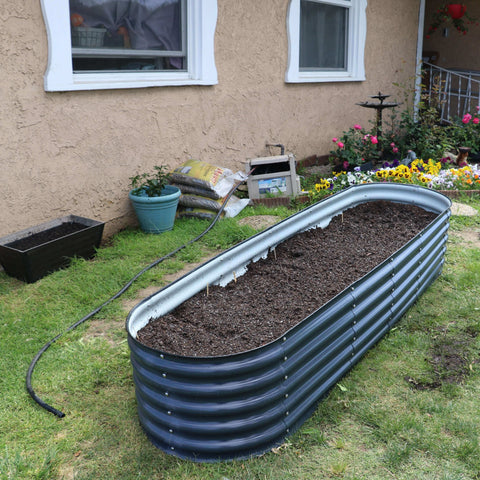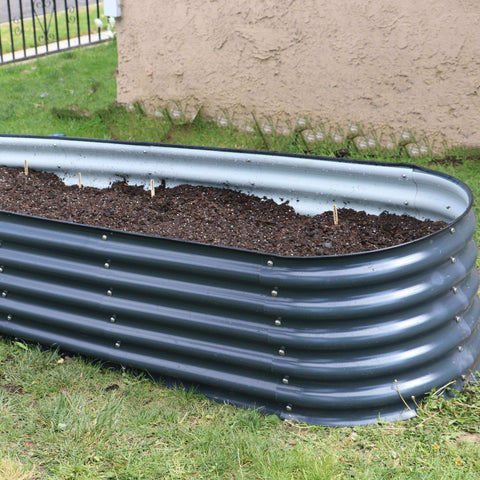How to Increase Soil PH in Raised Garden Beds
Raised garden beds are a useful planting method that makes garden management easier and provides better protection against pests and diseases. However, sometimes the soil pH in raised garden beds can be too low, which can negatively affect plant growth and development. In this article, we will discuss how to increase soil pH in raised garden beds.
Step 1: Test Soil pH
Before attempting to increase soil pH in raised garden beds, it is important to test the soil's pH level. You can use professional soil testing tools or self-testing soil pH test strips. Knowing the current soil pH level will help you determine which measures to take to adjust the pH level.
Step 2: Add Lime
If your soil pH is below 7.0, adding lime may be one of the best methods to increase the pH level. Lime can quickly neutralize acidic substances in the soil, thereby increasing the pH level. Before adding lime, you need to determine the type and amount of lime needed. There are many types of lime, including lime powder, limestone, and marine lime. Refer to the soil type and plant species in your area to choose the most suitable type of lime. Typically, adding 1-2 kilograms of lime per square meter of soil can increase the pH level.
Step 3: Add Organic Matter
Another method to increase soil pH in raised garden beds is to add organic matter. Organic matter can help increase soil pH and can also increase soil fertility and organic matter content. For example, you can use decomposed leaves, grass, kitchen waste, and other organic matter to improve soil quality. Scatter these organic materials on the soil surface and mix them into the topsoil to promote their decomposition and increase soil pH.
Step 4: Use Calcium Carbonate
Calcium carbonate is another method to increase soil pH in raised garden beds. It can quickly neutralize acidic soil and increase the calcium content in the soil. You can add calcium carbonate to plants or use it as a soil amendment. Typically, adding 50 grams of calcium carbonate per square meter of soil can increase soil pH. Note that excessive use of calcium carbonate can cause calcium salt deposition, so be sure to use it in the correct amount.
Step 5: Adjust Plant Species
Sometimes, you can solve low soil pH problems in raised garden beds by choosing plants that are suitable for the current soil pH level. For example, blueberries, lemons, and apricots require lower pH levels to grow, while beets, carrots, and other vegetables require higher pH levels. Therefore, before planting, carefully consider the plant species you want to grow and adjust the soil pH level accordingly.
Conclusion:
Increasing soil pH in raised garden beds is a process that requires patience and experimentation. Before adjusting soil pH, make sure you have properly tested the soil pH level and choose the appropriate adjustment method based on the test results. If you are unsure about what to do, consult with professionals or your local garden center for more advice and guidance.


